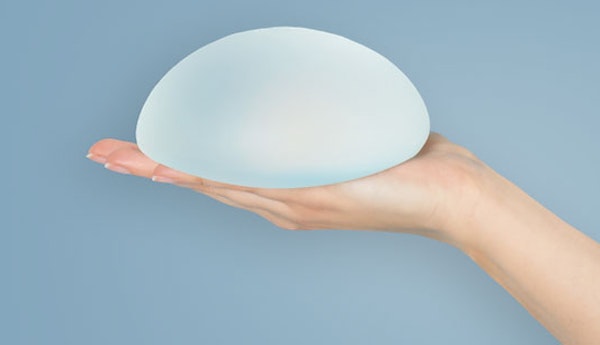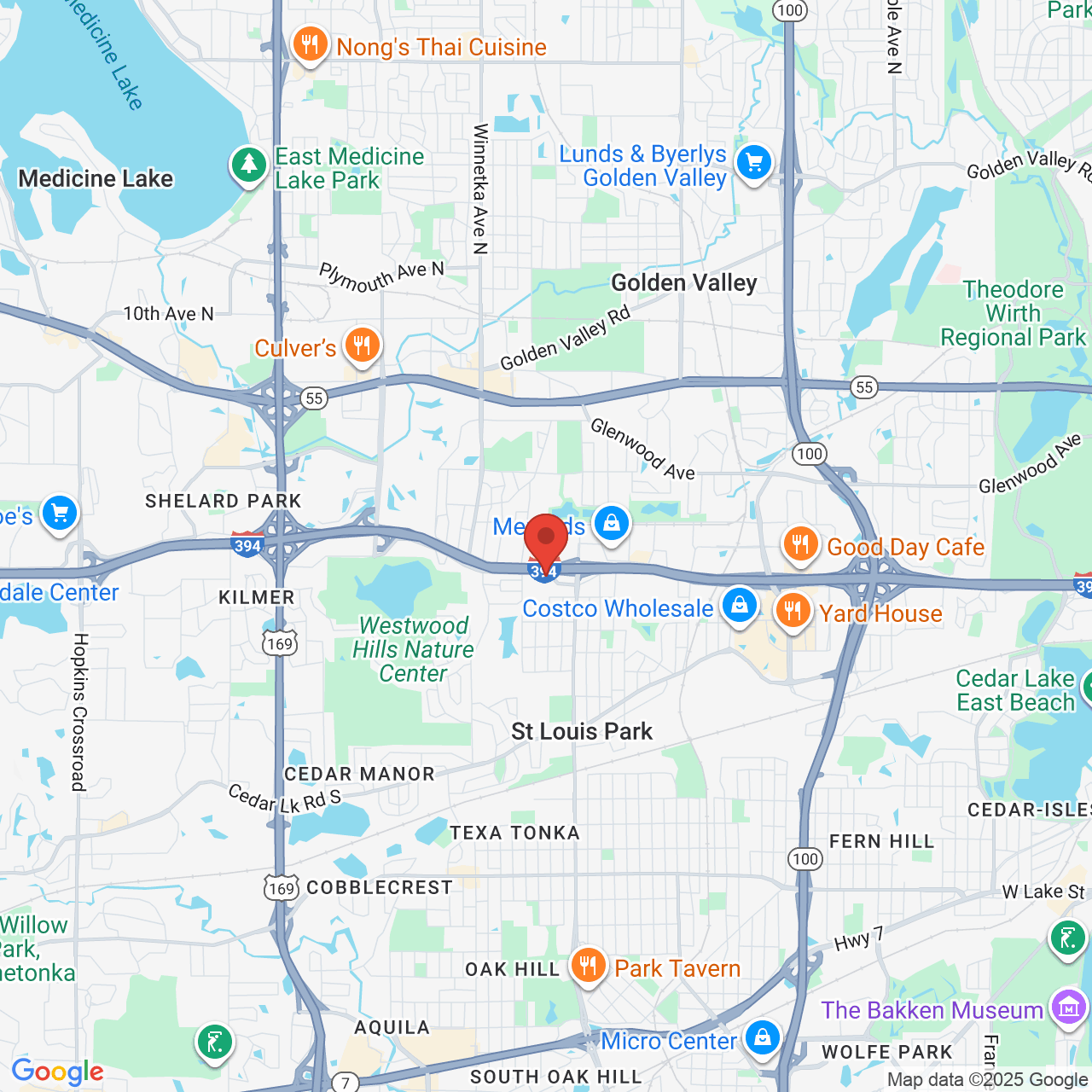
Breast Augmentation in Minneapolis, MN
Are you unhappy with the size of your breasts and want to permanently enhance your curves?
Dr. Gregory T. Mesna is a skilled plastic surgeon with 25 years of experience performing breast augmentation.
At Mesna Plastic Surgery & Aesthetic Center in Minneapolis, MN, patients can rely on us to achieve beautiful and natural-looking results.
How Breast Augmentation Can Refine Your Figure
In addition to increasing your self-confidence, breast augmentation with our plastic surgeon in Minneapolis, MN, can enhance your figure in the following ways:
Even Asymmetrical Breast Size
Increase Overall Breast Volume
Improve Breast Contouring
Watch Dr. Mesna Explain Your Breast Augmentation Options
Breast augmentation surgery is an outpatient procedure offered at Mesna Plastic Surgery in Minneapolis, MN, that adds volume to a woman's bust. Breast augmentation can boost a woman's confidence while enhancing her figure.
Request Your Free
Breast Augmentation Consultation
Breast augmentation with implants can be a very empowering choice. For decades, Dr. Mesna has boosted patients' bust lines and confidence with personalized implant procedures. Our expert surgeon draws upon his vast knowledge to answer all questions you may have and provide individualized care from your first visit.
At Mesna Plastic Surgery & Aesthetic Center, there is no such thing as a cookie-cutter approach. Our plastic surgeon in Minneapolis, MN, customizes each procedure we provide, ensuring that our patients receive the unique outcomes they deserve. Explore the possibilities at a consultation.
(952) 927-4556

Read Our 5-Star Reviews "Dr. Mesna did a great job on my breast augmentation"
Dr Mesna is FANTASTIC! I had gone through multiple consults for the procedures that I was looking into. I did not get an "awesome" feeling about the doctors I had met with. From the minute that he walked in the door I was totally at ease... I would refer anyone and everyone to Dr Mesna. I am SO happy with the outcome of my surgery.
View on GoogleDr. Mesna did a great job on my breast Augmentation last year..I chose Saline and went as big as my frame could handle.Im very pleased with the end result and very little scarring from small incision under my breasts..The clinic does offer financing .It was a no brainer to go this route..I'm going back soon to get my double chin fixed also...I highly recommend Dr.Mesna and his staff for any reason to beautify yourselves because We are worth it..
View on GoogleMeet Dr. Mesna
Dr. Gregory T. Mesna is a board-certified plastic surgeon who has been in practice since 1996. With close to 30 years of experience, he has finely honed his ability to precisely tailor breast augmentations to each of his patients' individualized goals.
Dr. Mesna was born and raised in Minneapolis. He earned his Doctor of Medicine from the University of Minnesota and completed residencies in general surgery and plastic surgery at the same institution. As a North Star State native, he has a true passion for helping his neighbors enhance their figures and confidence through surgery.
He went beyond the basic requirements of a plastic surgeon by becoming a Fellow of the American College of Surgeons. Dr. Mesna attained this elevated honor by, among other things, first earning prestigious board certification, submitting a case list of his past year of procedures, and receiving two references from existing fellows.

Reach Your Aesthetic Goals Request a free consultation today
If you are unhappy with the size or shape of your breasts, a breast augmentation can help you achieve the body you've dreamed of. Our Minneapolis plastic surgery office can help you choose the right breast implants and develop a custom treatment plan to help you reach your specific cosmetic goals. If you are ready to start planning a new chapter of satisfaction and confidence in your life, request a free consultation today by contacting us online or calling our practice in Minneapolis.
(952) 927-4556
More 5-Star Reviews "My results are incredible."
Dr. Mesna and his team made me feel comfortable during the whole process. Highly recommend if you have anxiety but still need/want surgery. The team was available to me around the clock for questions or concerns.
View on GoogleDr. Mesna and his team are amazing. Professional, kind and most important provide education throughout the process. My results are incredible. Dr. Mesna is an amazing plastic surgeon!
View on GoogleBreast Augmentation Is a Popular Choice for Many Americans
If you've ever wanted to enhance your breasts, you're in good company.
According to the American Society of Plastic Surgeons, breast augmentation surgery was the second most popular cosmetic surgical procedure in 2022. That year, 298,568 patients refined their figure with breast implants or a breast reduction.
Does Insurance Cover Breast Augmentation?
/
Breast augmentation is not covered by medical insurance because it is purely cosmetic and not medically necessary. To help make the procedure affordable, our Minneapolis practice is happy to help you obtain financing through Med Loan Finance and Prosper Healthcare Lending. Our staff is here to patiently explain these options so you can make an informed decision when it comes to budgeting for breast augmentation costs.
Choosing the Right Implant and Techniques Customizing Your Surgery
Breast implants come in a range of profiles, sizes, shapes, and types. The best option for your needs will depend on your desire for volume, shape, or enhanced cleavage. Dr. Mesna can help you understand the various breast implant options and how each would look on your figure during your consultation at our Minneapolis, MN, practice. Both saline and silicone implants are approved for breast augmentation by the Food and Drug Administration (FDA).
Saline Implants
Saline implants are made of a soft silicone shell that is filled with saline, or salt water. These implants are placed within your breasts before they are filled, allowing for a smaller incision. These implants are safe and generally cost less than their silicone gel counterparts. There is no difference in the quality of surgical placement, but many of our Minneapolis area patients find that saline does not achieve the same life-like feel as silicone.
Silicone Implants
Silicone breast implants are filled with a viscous silicone gel. These implants are highly regarded for their ability to provide a lifelike appearance and feel, and when placed by Dr. Mesna, can last a long time. Patients who currently have minimal breast tissue can benefit from the supportive nature of silicone. These implants are lighter than saline implants, which can prevent downward displacement over time and allow you to maintain a perkier, firmer look. Silicone breast implants also carry a lower chance of breakage, but can be more expensive than the saline option.

Incision Technique
Since they are inserted empty, saline implants can be placed through a wide variety of techniques, including incisions around your nipple, beneath your armpit, and along your breast crease.
Silicone implants are typically only inserted through larger incisions beneath the breasts or around your nipple.
The type of incision technique you select can also depend in part on the amount of scarring you are comfortable with and your body type. Dr. Mesna works carefully to minimize visible scarring and can help you understand all of your options.

Implant Placement
Breast implants can be placed above or below your pectoral muscles. Subglandular implants are placed above the pectoral muscles. This placement technique typically heals the fastest because fewer tissues are disturbed during surgery.
Submuscular breast implants are placed completely or partially beneath the chest muscles. Although this requires a longer healing time, many patients believe that this placement method looks more natural. The right placement for you can depend on your build and the look you hope to achieve.
Breast Augmentation With Fat Transfer
Fat transfer, also known as natural breast augmentation, can also achieve beautiful results and is often used on its own to improve breast size or to complement other procedures.
This approach requires an additional cosmetic surgery procedure: liposuction. We perform liposuction in Minneapolis, MN, to remove excess fat from specific areas of your body. This fat can be processed, and then injected into the breasts to increase breast size or produce a more natural look in women with breast implants.

We Perform Breast Augmentation Revisions
/
Unfortunately, not all surgeons are able to achieve the results they tell patients are a certainty. If you have been scarred by a surgeon elsewhere, you can trust our Fellow of the American College of Surgeons, Dr. Mesna, to perform a revision and achieve the bust line you dreamed of.
Begin Your Breast Augmentation Journey With a Free Consultation
Ever wonder what it would be like to enhance your figure with breast implants?
You have nothing to lose by learning about the possibilities. Dr. Mesna proudly provides free consultations, giving patients the resources they need to make the best decision about their bodies. If you have multiple cosmetic goals in mind, he can educate you on your options, sharing more than 25 years of experience with you.
He may even be able to pair certain procedures with your breast implants, such as liposuction or a breast lift in Minneapolis, MN.
To find out if breast implants are right for you, contact our Minneapolis, MN, office or call

"I have never been happier" Reviews From Our Minneapolis, MN, Plastic Surgery Patients
This is such a warm and friendly place! Leah helped me with my skin via a laser treatment. My skin is glowing and looks amazing! She was so sweet and helpful. Don't hesitate to go here for your beauty needs, they have all the experience!
View on GoogleHad upper eyelids lifted. Great service, caring staff, superb surgery by Dr. Mesna. I felt respected, valued and well cared for. Highly recommend for anyone seeking this procedure.
View on Google
Dr. Mesna Can Combine
Breast Implants With a Breast Lift
For More Stunning Results

Breast implants can add volume and refine the shape of your breasts. However, if you wish to have perkier breasts with better projection, then you will need a breast lift. Combining the two procedures is extremely common. With the right plastic surgeon, you can finally find the results you've wished for.
If you are not a good candidate for breast implants or a breast lift, Dr. Mesna will kindly explain that to you. His patients' safety and comfort will always be his number one priority.
Pre-Operative Testing
Mammogram
If you are aged 35 or older, you will be required to undergo a mammogram before your breast augmentation procedure. It is important to have a normal mammogram result in order to undergo surgery because the procedure can aggravate unhealthy breast tissue. Be sure to obtain your mammogram a few months prior to your surgery to ensure the best results.
EKG or Blood Tests
If you are over 40 years old, you may also need to receive an EKG or undergo blood tests to further ensure that you are in good health. These tests do not take long and are important to the success of your breast augmentation. Dr. Mesna and our team can coordinate all tests with local specialists to maintain a streamlined treatment timeline for you.
Is Breast Implant
Placement Painful?
Dr. Mesna takes care of his patients, making sure that you will not be in any pain as he places your breast implants. General anesthesia will keep you unconscious and entirely comfortable during your breast augmentation surgery.
After the procedure, you will likely feel some discomfort, which can be managed by over-the-counter medication. You may also notice possible swelling of and around the breast tissue.
If you have any concerns, you can always reach out to Dr. Mesna for help, answers, or reassurance.
How We Reduce Post-Operative Problems
Advanced Techniques
Our plastic surgeon uses advanced techniques to prevent infections, capsular contracture, implant deflation, and rippling. While issues such as capsular contracture, leakage, and rippling are all possible long-term risks, Dr. Mesna achieves excellent and long-lasting results.
Conservative Approach
Dr. Mesna also practices conservative surgery whenever possible, and he understands that the nipple has potential to lose sensation after surgery. However, Dr. Mesna's precise and skilled hand can ensure a safe procedure that does not result in a loss of sensation in the nipple.
Empowering Patients
After breast augmentation, Dr. Mesna provides a packet of easy-to-understand information and instructions that you need to achieve an optimal recovery and minimize scarring. This packet has been finely tuned over many years of use to ensure patients can get the most out of their surgical investment.
Other Frequently Asked Questions About Breast Augmentation
Can I breastfeed after breast augmentation?
Most often, the answer is "yes." Many patients can breastfeed after breast augmentation, while others report difficulty. While it is considered safe to try to breastfeed following breast augmentation, doctors suggest that patients be done having children before undergoing this breast surgery, mainly because the changes that accompany pregnancy will affect the results of breast augmentation.
Are breast implants FDA-approved?
Yes. Both saline and silicone breast implants are approved for breast augmentation and breast reconstruction. Saline implants are approved for breast augmentation in patients 18 or older, and breast reconstruction for any age. Silicone implants are approved for breast augmentation in patients 22 or older, and breast reconstruction for any age.
What happens if an implant ruptures?
Leaking saline solution is harmless; it is absorbed by the body and expelled naturally, and a subsequent surgery can be performed to remove or replace the implant. A ruptured silicone implant may not be immediately apparent, but as soon as it has been detected, the silicone gel and implant must be removed or replaced right away. It is recommended that silicone implant recipients undergo an MRI three years after surgery, and every two years after the initial exam.
Are mammograms safe for patients with breast implants?
Yes. However, it is very important that you let your mammogram technician know you have implants before they start.
"I am so happy with the results." Words of A Satisfied Minneapolis Patient
"I am so happy with the results of my breast augmentation. Dr. Mesna and his team are professional, kind, approachable and the best in the biz. Even his office staff made me feel comfortable! It was my first big surgery and he made me feel so comfortable and educated me along the way. My recovery was simple and I love how they look. Highly recommend Dr. Mesna. I will be sending his name to everyone and he will be doing any other future surgeries for me ☺️ thank you doc and team."
Rachel Roberts, 2022








